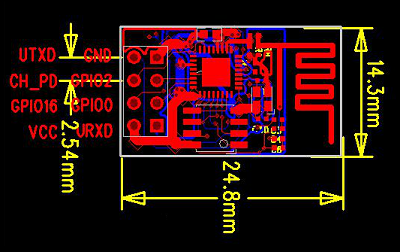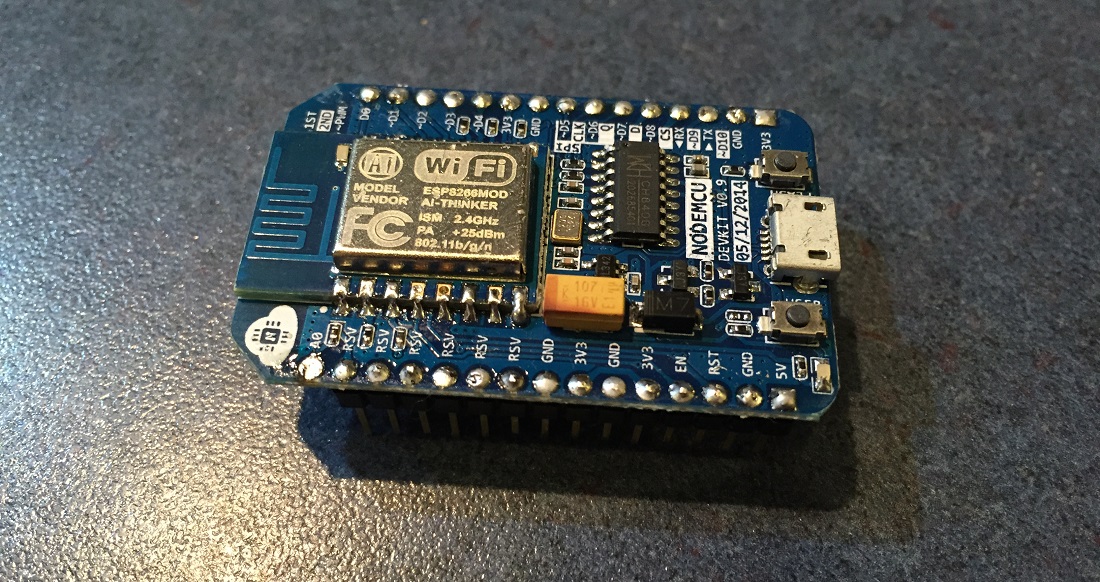Simply put, the ESP8266 is a $3 wifi enabled micro-controller. Oh, and the firmware has also been released open source!
News and code samples have been popping up all over the internet in the last few months. My favourite source of ESP news is hackaday.
The ESP-01 is the most common module available and to be honest, it took me hours to get started. There didn't seem to be a definitive guide on getting it to work! Sweat and stubborness eventually led to success.

For anyone trying to get the ESP-01 working: Supply at least 300mA at 3.3v. Then connect the CH_PD pin to VCC. This is enough to get the chip running. To flash a firmware, use a 3.3v USB->Serial adapter (this adapter works great for me). A baud rate of 9600 worked on every ESP-01 so far.
The most appealing project in development however, is the NodeMcu firmware. NodeMcu is a Lua interpreter, sitting on top of the base firmware, that makes programming the chip a cinch.
Connecting to a wifi network is as simple as:
wifi.setmode(wifi.STATION)
wifi.sta.config("NETWORKNAME", "password!")
wifi.sta.connect()
Imagine the IoT possibilities...
NodeMcu Devkit
One of the big turn-offs for people wanting to try an ESP8266 based module is all the manual setup of components and power sources.
NodeMcu has also designed it's own development board - the NodeMcu Devkit. It contains all the components necessary to power and program the device. It also has all the pins available on breadboard compatible headers!

My devkit arrived the other day. It is extremely easy to get started and use. Future posts will feature some projects based on this board.
Jourdan